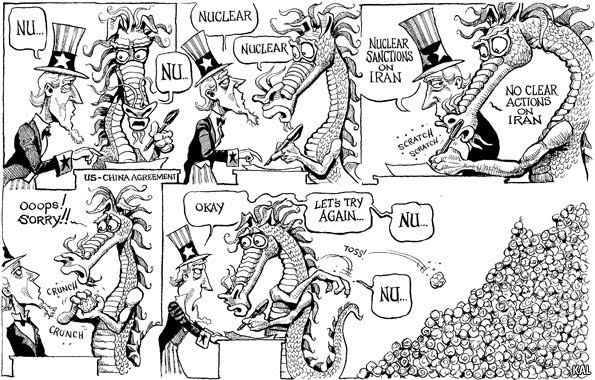THE BLUNDERS OF AMERICAN HEALTHCARE REFORM
The Problem: Everyone is Value-Laden. In other words, we are born into whatever social, political environment and then tend to defend its virtues when confronted with alternatives: we might say, that slavery is morally just and use a convincing argument for why this system should persist. The value-laden reality of human interaction is disturbing because there are argument to justify any course of action based on our value-laden perspective.
Having said that from an outside observer – the majority of the Western world – the US is extremely strange with regard to their healthcare. Most Americans believe the public sector cannot do anything as well as the private sector. When it comes to the right to have medical treatment: corporate interested prevail. There is the philosophical question of whether the individual should be solely responsible for their wellbeing or whether the state can provide some protection when individuals alone cannot prevent health problems, or are unable to provide their commodified value in a market economy. don’t see it this way. Also, rational arguments regarding comparisons to other healthcare systems are difficult to come by: Americans are inundated with the worst cases of universal healthcare in Western Europe, Canada, Taiwan, and Japan> For example, how foreign leaders come to the US to receive treatment must imply that the US has the best healthcare system…such arguments overlook the question of who benefits from such a system. Some rich man/person? or the Rest of Society?
IN the USA:
• Customers go into bankruptcy while executives make bonuses and take their family on vacation in the Bahamas. Profiteering by doctors, CEOs in healthcare businesses is institutionalized. For example with WellPoint Health Benefits Company: their interests are with their shareholders. Like an health insurance company their incentive is to have their stock options go up: the incentive is NOT to improve the health for their customers. The US has little preventative care: the health insurance companies do not benefit from having healthy people in their system.
• If you leave healthcare to business, healthcare becomes a market where it is the ability to pay not the need of the individual that matters. The burden is on the individual to be productive enough to receive care. A circle of inequality is an obvious by-product where an individual becomes ill and then cannot be a productive member of society.
• The cost of healthcare is absurd in the United States of America. Premiums are raised to increase the wealth of those at the top of market based organizations, from cell phone companies to small businesses to health insurance companies: The healthcare insurance in the US per person is twice the cost of healthcare in Canada, UK, and France. 6,000 American dollars per year versus 3,000 (US) dollars in Canada, UK, and France and yet 46 million Americans are uninsured and do not receive any care unless they fill out Medicaid forms (which provide poor coverage for poor/ill people).
• Health Insurance companies deny customers because they are unprofitable customers ie. customers who get sick, lose their jobs, and can’t pay their premiums. They should no longer be able to reject someone with a preexisting condition. The new Healthcare Reform’s only significant victory is that it will be unlawful to cancel insurance once someone gets ill. Health insurance companies purge small businesses (50 people or less) and individual people. They don’t care that people have a lot of insurance. The CEOs do not interact with the poor who can’t afford insurance. CEOs are trying to avoid interacting with the consequences of a market system that benefits from illness not from healthy citizenry.
• Doctors have an incentive to over prescribe medication. Psychiatric drugs are rampant. Doctors are motivated by sales, not necessarily by best practices. Increasing profits is the bottom-line, the health of patients is ancillary.
• The lobbying going into Congress by the health insurance industry is overbearing, as well as the politics of weakening Obama’s presidential capital. There is always something to complain about when it comes to a bill before the US Congress: it’s too long (the Patriot Act, Healthcare Reform). Federal bills are very complex: deal with it: that is not a critique: the central issues are answered as straightforwardly as possible. The details are settled by legal hacks, any major problems with the bill will emerge and be rectified.
Life Under Labour
USSR WAR IN AFGHANISTAN 1979 – 1988 Part 2

1980 100,000 USSR Soldiers: Soviet soldiers were promised combat against American troops by the KGB but this claim was an obvious lie. The Soviet war was useless because the Mujahadeen consistently reappeared after the previous days of fighting. Mujahadeen had internal conflicts. Gratitude lasted seldom longer than a few hours. The War was fought with Mujahadeen blood and with America’s goal: to end communism in Russia. The USSR abandoned massive sweeps with air based tactics. The UN pushed for shuttle diplomacy saying that if Russia left Afghanistan the US would stop supporting the Mujahadeen. (Similar to Iran’s promise with Americans). The USSR bombed Aghanistan from the air. The Soviets destroyed a whole village. Many young men were forced into the Afghan army those who refused were shot. The toll of Soviet dead was as much as 2000 per year. The soviet arm was largely drunk, drugged, and felt the war was pointless.
As a soldier in the USSR, you realized that the system creates lies in USSR. The USSR lied to its public claiming that there was no war but that their soldiers were building schools. The USSR would not allow people to write on their son’s gravestone regarding where that son had died: Afghanistan. Gorbachev had to explain what the point of the war was: they needed to find a process for escape. It was difficult to withdraw from Afghanistan. What kind of government would emerge without the USSR in Afhgnistan. USSR choose a new leader in Afghanistan: Nagibula. They needed a peace initiative with the Mujahadeen. The USSR needed US support. But Reagan wanted to make the USSR pay for Vietnam. The Mujahadeen were given USSR weapons by increasing US aid. The USSR was punished brutally in this war. 


